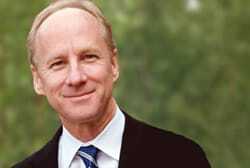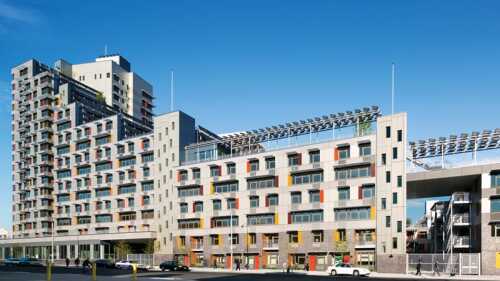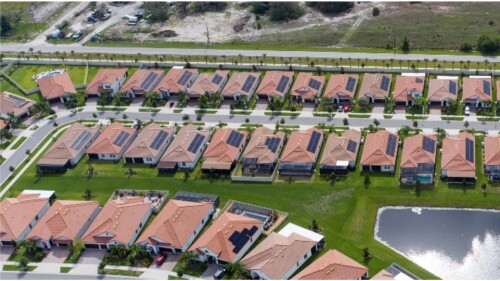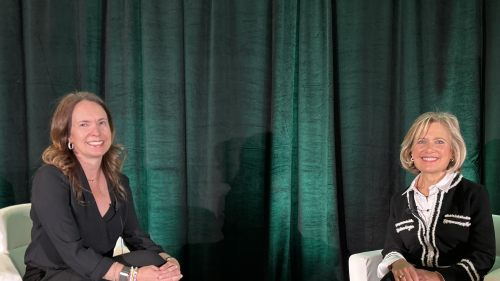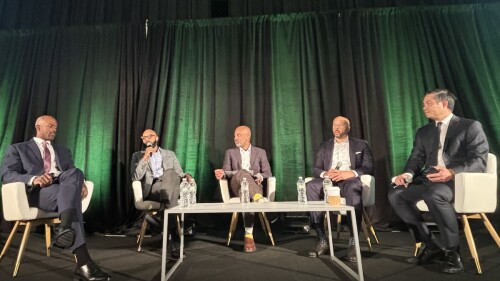During my time as ULI’s global chief executive officer, it has become increasingly clear to me that one of the great attributes of the Institute is its ability to embrace change and evolve without losing sight of its core values. Since coming on board in 2009, I’ve been proud that ULI has continued to improve by becoming more transparent and accountable to our members. As part of this process, we have elevated, energized, and aligned our member networks; deepened our commitment to becoming truly global; and embraced new technology—all of which better equips our members to deliver the Institute’s mission.
Soon, we will deliver a new global strategic plan for ULI in conjunction with strategic plans being developed for the Americas, Europe, and Asia Pacific regions, as well as the ULI Foundation, which together will chart the course for ULI’s next era. The shared focus of these plans is connecting our members with one another and helping them share knowledge, do their best work, and maximize the benefit to their communities. The delivery of our strategic plans also creates an appropriate moment to consider the question of ULI’s leadership for the future.
After eight very rewarding and fulfilling years at the helm, it’s time for me to step down. I’m eager to keep advancing the Institute’s mission, but by engaging more directly to help create strategies that produce beautiful, healthy, vibrant, and inclusive places. I will, of course, be continuing my long relationship with ULI, serving again as a member—a role I cherished for many years before joining the staff, and one I look forward to resuming.
ULI’s Global Board of Directors will soon begin a search for my successor. At the board’s request, I have agreed to coordinate the completion of the strategic plans, and to continue to serve until a smooth transition is ensured.
Leading ULI has deepened my appreciation of just how influential the Institute is, in terms of inspiring people to achieve better outcomes for their communities. One of my first trips as CEO was to Nashville, where I met with members of the then-new district council. Coming into the city, I kept seeing yard signs with ULI’s logo, and it turned out that the signs identified homes made more energy efficient through a partnership among the district council, the city, the local electricity company, and a nearby university. This was not a global ULI initiative—it was conceived and led by this young district council, determined to make an impact.
That experience in Nashville was one of many that continue to remind me of ULI’s ability to make a powerful difference at the local level. Our district councils and national councils have become key mechanisms for engaging members to advance the Institute’s mission. Their potential is great as more of them are employing a regional approach, working together to address land use issues of common concern, and as they work more closely with product councils to share knowledge and generate content that benefits the broader membership.
And, every success that ULI achieves locally adds to its success globally. During my time as CEO, it has been particularly gratifying to witness the growth of the Institute’s stature and brand around the world. Among the many examples:
- A series of ULI Advisory Services panels exploring the revitalization of underserved areas in South Africa, each of which occurred through a collaborative effort with the World Bank;
- An exploration of livable density with the Centre for Liveable Cities in Singapore, which led to a longstanding partnership;
- Thought leadership gatherings at the Rockefeller Foundation’s Bellagio Center in Italy and at a ULI Midwinter Meeting in Paris, each of which brought together internationally renowned experts on various issues affecting land use, from social equity to technology;
- The expansion of UrbanPlan in Europe to teach the next generation about urban development;
- And most recently, three advisory panels in Asia to address complex development challenges in Wuhan, China; Beijing; and Singapore.
Early in my tenure, I identified four overarching principles to help ensure ULI’s effectiveness and value to members: efficiency, in terms of matching members’ needs with appropriate resources in ways that anticipate growth and change; leverage, to make the most of our members’ and partners’ desire to be involved; integration, to better connect all of ULI’s offerings and member networks; and impact, to measure the positive difference that ULI members make in communities worldwide.
These four principles have served as my guideposts to measure ULI’s adaptability to changing times—economic recession, recovery, and rally—and changing member needs. With the leadership of our members, ULI has not just adapted, it has thrived. And, as much as the Institute has accomplished during the past eight years, I believe our work is just beginning. With a member-oriented governance structure in place to fully support the needs of members in the Americas, Europe, and the Asia Pacific region, ULI’s potential has never been greater. Our Institute is very well positioned to lead the industry’s future, and I look forward to doing my part as a member to make this happen.
I am extremely appreciative of the incredible devotion of time, expertise, and financial support you make to ULI. I’ve often thought (and said) that if ULI did not exist, we would have to invent it. There is no other organization like it, and no finer group of members. Your support has helped me tremendously in building, leading, and representing a talented professional staff committed to helping members advance ULI’s mission. I extend my heartfelt thanks for the opportunity to serve each of you.

